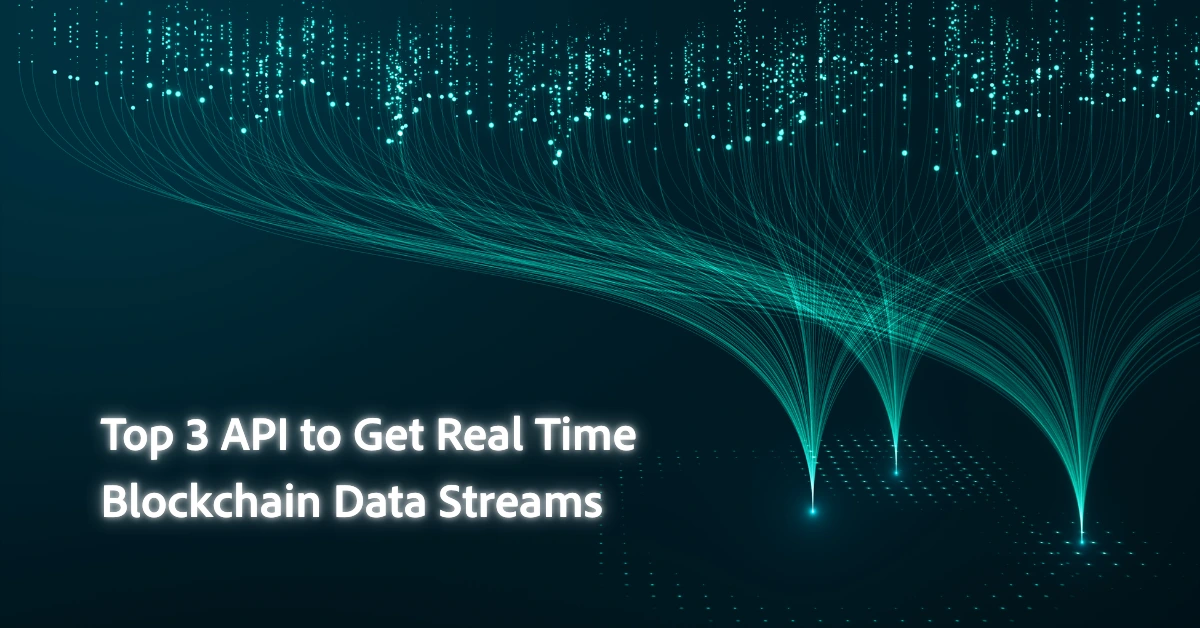
For developers, traders, and analysts, having access to real-time blockchain data is very important. Access to transactions, smart contract interactions, and network activity encourages fast decision-making, smarter trading strategies, and more efficient dApp development.
In this article, we will focus on the top 3 APIs that developers, analysts, and traders can use to get real-time blockchain data streams for insights, automation, and decision-making.
Bitquery is a powerful blockchain data provider that provides APIs and tools for accessing and analyzing data across multiple blockchain networks, including Solana. It also offers comprehensive and real-time data, making it a top choice for traders and developers.
Bitquery provides real-time data across multiple blockchain networks, which allows for cross-chain visibility. They include;
Ethereum and EVM-compatible chains (BSC, Polygon, etc.)
1. GraphQL Subscriptions
Unlike regular queries that fetch data once, GraphQL subscriptions establish a persistent connection that pushes new data automatically when it becomes available.
2. Kafka Streams
Bitquery provides real-time blockchain data through Kafka streams as an alternative to WebSocket subscriptions. This solution is useful for algo traders, custodians who need low latency on-chain data to compete with similar services.
3. Comprehensive Data Points
Bitquery gives you access to rich, granular data in real time across multiple categories:
These key features make Bitquery’s real-time data streams a comprehensive solution for blockchain data needs, allowing developers to build sophisticated applications that respond instantly to on-chain activities across multiple blockchain networks.
Alchemy is a development platform that provides infrastructure and tools for building decentralized applications (dApps) on various blockchains. It offers real-time trading data, smart contract interaction, and advanced analytics to power DeFi, NFT marketplaces, and trading platforms.
Alchemy provides real-time blockchain data streams via tools and APIs that are designed to make data collection and monitoring easy for developers. Here’s how they do it:
1. Pipelines: Alchemy makes use of pipelines that allow developers to set up real-time data streams from blockchain networks to their preferred destinations. A data source (e.g., decoded logs) is configured as well as a destination (e.g., Postgres), and data flows through instantly. Pipelines come with the following features:
2. Custom Webhooks: Alchemy offers Custom Webhooks to enable real-time blockchain event notifications, allowing developers to receive instant updates when specific on-chain activities occur for a set of wallets, events, and traces on a set of smart contracts. Custom Webhooks use GraphQL subscriptions to filter and push blockchain events to a specified HTTP endpoint (e.g., a cloud function or backend server).
3. WebSockets API: Alchemy also provides real-time blockchain data streams through its Websocket API. The WebSocket API provides a persistent, low-latency connection for streaming real-time blockchain data, which allows enabling developers to build responsive dApps without inefficient polling. It works by establishing a WebSocket connection to Alchemy’s high-performance Supernode infrastructure, where apps can subscribe to specific on-chain events like new blocks, pending transactions, or smart contract logs.
Chainlink is a decentralized oracle network that connects smart contracts with real-world data and external systems, allowing them to securely interact with off-chain information.
Chainlink provides real-time blockchain data through its Data Streams solution. The Data Streams solution is a pull-based oracle system that delivers low-latency market data off-chain, which you can verify on-chain. This gives decentralized applications (dApps) on-demand access to high-frequency market data. Here’s a detailed breakdown of its architecture and functionality:
For developers, traders, and analysts, having access to real-time blockchain data is very important for informed decision-making, trading strategies, and dApp development. The APIs mentioned all stand out as top solutions, where each platform caters to distinct needs, ensuring reliable, real-time insights across DeFi, NFTs, and beyond.
Bitcoin price is heading into the new week sitting right below key psychological levels, but…
XRP price started the session on a strong note, pushing quickly to an intraday high…
Bitcoin is showing signs of stabilization after weeks of volatility, raising a major question across…
Story Highlights The price of the Livepeer token is . Livepeer (LPT) price prediction 2026–2030:…
Bitcoin traded mostly flat over the past 24 hours, posting only a small increase after…
XRP is showing fresh momentum in the crypto market, rising about 5% in the last…